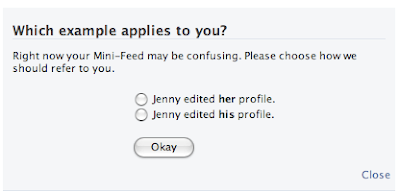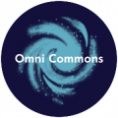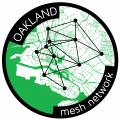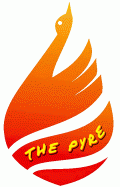|
|
Perhaps it’s but a personality trait, but I find myself decidedly undecided, residing in a constant state of indecision. For better or worse, I turn to the steady hum of the interweb for inspiration. Going out to dinner entails a lengthy perusal of online reviews (three cheers for yelp!). My life decisions, beginning most memorably with the college search since the advent of high school, are group decisions. This is not to say people have not always been composed of their collective interactions (read: culture), but that this process is occurring in new ways that have yet to be understood and categorically ordered into consciousness.
For as much as we are conduits of culture, we are also its composers. Being as it is the dawn of a new era of mediated communication, we are in prime position to create new memes for future generations. This is imperative, for as anyone tapped into the collective neural net knows (and that’s everybody, to varying forms and degrees), the world is in a deep malaise that, while it may never be undone, must be remade. Degunk the junk and foster the funk.
Through the mirror, darkly sinister forms abound. The websites I have been researching glamorize “stupid spoiled whores,” revel in misanthropy, and celebrate self-mutilation. This is the ugly underbelly of a jaded generation, saturated with the soulless machine of a media industry gone mad. Eventually, one would imagine, we will reach satiation and revolt against this funhouse mirror of our society. That is to say, we may and must remake the mirror.
Here we stand, poised at the precipice of a new era of information flow. The simple existence of these websites is telling: with the ever-evolving tools of the interweb, the ever-increasing population of the digitized can join the conversation. Little surprise it is that we converse online in the same way we converse offline: we gossip about others, consume media and talk about it, create representations of ourselves through performative acts, confess our darkest secrets and innermost longings in the sanctuary of like-minded others…
And, like in life, some clamber for soapboxes where they may espouse prolifically to a mostly unseen (but potentially vast) audience, while many lurk about, not wishing to be heard but willing to absorb. Though most of us be sheep, theories regarding the wisdom of the crowd contend that diluting and diversifying such a crowd will increase the chances of its survival.
In order to survive, we need to be critical producers of alternative points of view. This post was originally inspired by the research I’m conducting on pro-self harm websites; having sussed out the black-and-white, the extremes, I’ve moved on to the nuanced middle ground. In this space that is neither supportive of self-destruction nor condemning of such a perspective, there are emerging voices that seek to not only reflexively examine the issue as it stands, but to redefine the very definition of “pro-self harm.” Not supportive of the disordered habits that are the coping mechanisms for our culture, but supportive of those who are clearly in need of support most of all. Effective support entails not only empathy and understanding, but strong voices (herders, if you will) with the capacity to critique our disorderly conduct and call new memes into being. So clamber on up, to the top of the search results, redefine the folksonomy, and remake that mirror (repetition numero tres).
Consider this a call to action.
Some inspiration:
mamaVISION: Highly controversial (read: popular) personal blog of a 30-something ex-model turned mother, dedicated to spreading awareness of our eating disordered society and empathetically communicating with the sufferers themselves.
We Bite Back: Post-pro-ana – Postmodernizing the discussion of eating disorders and encouraging recovery.
Suicide: Read This First: Another form of “pro-suicide”- offering empathetic understanding and resources.
Self-Injury: A Struggle: Longstanding site devoted to spreading awareness and cultivating a community of support for self-injurers, created by a fellow self-injurer.
beat. chirp. pound. chase.
guided by mud and moon we dance
the heart’s song, the web of man,
yet cut still closer to the bone:
love, death, the beast of being,
the cruel joke, the wrenching twist-
it might remake a god in man.
under canopies of rainlight haze,
how and why we number our days,
may we for a moment stomp our seeing
limbs and howl out the agony.
“we can never be born enough”
birth me then, now, here,
projected like a tummy creature, green and gooey~
(the frequencies we found were too fierce;
fearfully we turned away-
no.
i sing the heart verbatim:
beat. chirp. pulse. chase.
stripped raw to nerves more and footsore,
fondle forever the fuzzy croptop of communitas,
collision, clusterfucktranscendance,dance,fools!
together knit we find the fibers beyond fingertips,eyes,seeing limbs-
it rose like a spaceship toward the sun.
“The world is a mirror of the mind’s abundance,”
is typed alone to a page near the end of this novel.
What Winterson makes abundantly clear is the true process of storytelling, a process that abstracts the past and remaps the future. Our heroine, Ali, taps out stories for her customers, sent through the ethereal interweb in pursuit of such an impact: “freedom, just for one night.”
As much as the story shifts so does she, hurtled through the lives of fairy tales past, retold again and again in various guises. Through such shifting of the story, for which the screen is a conduit, we find a metaphor for the ever-fluxing selves in which history and memory are contained:
There are so many lives packed into one. The one life we think we know is only a window that is open on the screen. The big window full of detail, where the meaning is often lost among the facts. If we can close that window, on purpose or by chance, what we find behind is another view.
This window is emptier. The cross-references are cryptic. As we scroll down it, looking for something familiar, we seem to be scrolling into another self- one we recognize but cannot place. The coordinates are missing, or the coordinates pinpoint us outside the limits of our existence.
If we move further back, through a smaller window that is really a gateway, there is less and less to measure ourselves by. We are coming into a dark region. A single word might appear. An icon. This icon is a private Madonna, a guide, an understanding. Very often we remember it from our dreams. “Yes,” we say, “Yes, this is a world. I have been here.” It comes back to us like a scent from childhood.
These lives of ours that press in on us must be heard.
We are our own oral history. A living memoir of time.
Time is downloaded into our bodies. We contain it. Not only time past and time future, but time without end. We think of ourselves as closed and finite, when we are multiple and infinite.
This life, the one we know, stands in the sun. It is our daytime and the stars and planets that surround it cannot be seen. The sense of other lives, still our own, is clearer to us in the darkness of night or in our dreams. Sometimes a total eclipse shows us in the day what we cannot usually see for ourselves. As our sun darkens, other brilliancies appear. And there is the strange illusion of looking over our shoulder and seeing the sun racing towards us at two thousand miles an hour.
What is it that follows me wherever I go?
Not that the self be shaken loose, but that it be found, reassembled, in the process of remembrance itself. Which is to say: I am the sum of parts, artifacts of time, indulgent fantasies and messier proclivities. And in this space, here and now, I am neither man nor woman but as yet an alien voice, hanging in makeshift space.
That said, I must say that this novel is reminiscent of my adolescent online diary: a tangled, messy, yet occasionally brilliant jumble of bits and pieces devoted to the wistful myth of romantic love. While the perfect companion to 20-minute subway rides, the writing here is oft redundant and cliched. Still, an inspiration for a new era of writing and reading.
when eyes meet there is a flash of understanding.
where within the screen do we find our mirror neurons firing forth?
pay attention
to the data.
taken together in infinite intricate interactions
of form and meaning,
we create a tapestry of makeshift sighs, high fives, smiles, shared laughter;
we remake the mirror daily.
intrigue takes us to the source.
swim liminal we shall through life’s watery edges,
and take time and care to trim the hedges.
(so coax and buzz the furry fuzz,
for useless is as useless does)
…is the introduction to e.e. cummings’ collected works. i read it many years ago, and pull it up whenever i need a reminder as to why i live the way i do – in the pursuit of being continually reborn, in the refusal to settle for anything less than a little more than everything, with the acceptance that i don’t quite “fit” and never will, dedicated to truths found only by my own accord- pardon my tendency to manifestos, but you’ll see what i mean. enjoy!
—
The poems to come are for you and for me and are not for mostpeople– it’s no use trying to pretend that mostpeople and ourselves are alike. Mostpeople have less in common with ourselves than the squarerootofminusone. You and I are human beings;mostpeople are snobs. Take the matter of being born. What does being born mean to mostpeople? Catastrophe unmitigated. Socialrevolution. The cultured aristocrat yanked out of his hyperexclusively ultravoluptuous superpalazzo,and dumped into an incredibly vulgar detentioncamp swarming with every conceivable species of undesirable organism. Mostpeople fancy a guaranteed birthproof safetysuit of nondestructible selflessness. If mostpeople were to be born twice they’d improbably call it dying–
you and I are not snobs. We can never be born enough. We are human beings;for whom birth is a supremely welcome mystery,the mystery of growing:which happens only and whenever we are faithful to ourselves. You and I wear the dangerous looseness of doom and find it becoming. Life,for eternal us,is now’and now is much too busy being a little more than everything to seem anything,catastrophic included.
Life,for mostpeople,simply isn’t. Take the socalled standardofliving. What do mostpeople mean by “living”? They don’t mean living. They mean the latest and closest plural approximation to singular prenatal passivity which science,in its finite but unbounded wisdom,has succeeded in selling their wives. If science could fail,a mountain’s a mammal. Mostpeople’s wives could spot a genuine delusion of embryonic omnipotence immediately and will accept no substitutes.
-luckily for us,a mountain is a mammal. The plusorminus movie to end moving,the strictly scientific parlourgame of real unreality,the tyranny conceived in misconception and dedicated to the proposition that every man is a woman and any woman is a king,hasn’t a wheel to stand on. What their synthetic not to mention transparent majesty, mrsandmr collective foetus,would improbably call a ghost is walking. He isn’t a undream of anaesthetized impersons, or a cosmic comfortstation,or a transcedentally sterilized lookiesoundiefeelietastiesmellie. He is a healthily complex,a naturally homogenous,citizen of immorality. The now of his each pitying free imperfect gesture,his any birth of breathing,insults perfected inframortally milleniums of slavishness. He is a little more than everything,he is democracy;he is alive:he is ourselves.
Miracles are to come. With you I leave a remembrance of miracles: they are somebody who can love and who shall be continually reborn,a human being;somebody who said to those near him,when his fingers would not hold a brush “tie it to my hand”–
nothing proving or sick or partial. Nothing false,nothing difficult or easy or small or colossal. Nothing ordinary or extraordinary,nothing emptied or filled,real or unreal;nothing feeble and known or clumsy and guessed. Everywhere tints childrening,innocent spontaneaous,true. Nowhere possibly what flesh and impossibly such a garden,but actually flowers which breasts are amoung the very mouths of light. Nothing believed or doubted;brain over heart, surface:nowhere hating or to
fear;shadow,mind without soul. Only how measureless cool flames of making;only each other building always distinct selves of mutual entirely opening;only alive. Never the murdered finalities of wherewhen and yesno,impotent nongames of wrongright and rightwrong;never to gain or pause,never the soft adventure of undoom,greedy anguishes and cringing ecstasies of inexistence;never to rest and never to have;only to grow.
Always the beautiful answer who asks a more beautiful question
A couple of days ago, the following message popped up on my Facebook homepage and has yet to disappear:

It would seem those who choose not to identify as “his” or “her” has become an issue of some urgency for Facebook. They’ve written a blog post about the issue:
As Facebook grows in other languages, we are learning a lot about what the “Facebook Experience” is like for people around the world. One of the first challenges was getting words that are really long in other languages to fit on the screen properly. Recently, we’ve been figuring out how to deal with a new challenge—grammar. Ever see a story about a friend who tagged “themself” in a photo? “Themself” isn’t even a real word. We’ve used that in place of “himself or herself”. We made that grammatical choice in order to respect people who haven’t, until now, selected their sex on their profile. However, we’ve gotten feedback from translators and users in other countries that translations wind up being too confusing when people have not specified a sex on their profiles. People who haven’t selected what sex they are frequently get defaulted to the wrong sex entirely in Mini-Feed stories. For this reason, we’ve decided to request that all Facebook users fill out this information on their profile. If you haven’t yet selected a sex, you will probably see a prompt to choose whether you want to be referred to as “him” or “her” in the coming weeks. When you make a selection, that will appear in Mini-Feed and News Feed stories about you, but it won’t be searchable or displayed in your Basic Information. We’ve received pushback in the past from groups that find the male/female distinction too limiting. We have a lot of respect for these communities, which is why it will still be possible to remove gender entirely from your account, including how we refer to you in Mini-Feed. We hope this change will make the Facebook experience even better across the world. Let us know if you have any thoughts about this on our suggestions page. Naomi is a Product Manager at Facebook.
Apparently it’s an issue of being lost or, as the case may be, misconstrued in translation.
I didn’t select a sex, just clicked ‘close’; confusion regarding such things has a salubrious effect on consciousness, methinks.
The Virtual Campfire has been getting hits from all over the world! Roger that, interest in online social networking has reached pandemic proportions :):

I’ve come to a point with this Berkman/danah boyd project on pro-self harm websites where I have a reasonable grasp of the discourses surrounding the issue. Pro self-harm websites (eg; pro-eating disorder, pro-cutting, pro-suicide) are yet another example of an underground movement demonized by mass media and made into a binarized issue of battling moral agendas. However, moral panics serve the primary function of legitimizing a subculture based on rebelling against popular discourse (interestingly, Sarah Thornton is once again the scholar par excellence when it comes to youth and subculture theory).
The best studies I’ve read so far call for a middle-path approach. Rather than continuing to enforce the black-and-white thinking of pop journalists and those who subscribe to the disease/illness paradigm of self-harm purported by the medical industry and the field of psychiatry, these scholars call for a dialectical approach that involves empathic understanding and collaborative participation in reconstructing the meaning of “pro self-harm” from within the communities in question. In a word, ethnography.
Word.
From the mid-19th century California Gold Rush to the turn-of-the-20th century cinematic fame of Hollywood, the furthest-west segment of the United States has inherited the legacy of the New Frontier. Today, the San Francisco Bay Area serves as the nexus of American utopianism, home of Silicon Valley and the dot-com frenzy, haven for hippies new and old.
I seek not to conclude my research of online social networking, but to extend its implications and apply it toward understanding the interconnected mysteries that keep me captivated by anthropology. The literature of cyberspace has quite literally predicted the future now within which we are currently living. The first step, then, is to become familiar with this literature, ranging from science fiction books and films to new ways of crafting contemporary folklore through the use of modern media technologies.
I’ve been chatting with James Curcio, author of Join My Cult! and, more recently, Fallen Nation. They’re also on my summer reading list, and fit quite neatly into the literature I’m looking to submerge myself in (indeed, our chats have been a substantial part of the inspiration behind this post). I’m hoping to contribute to one of his new projects,Mythos Media, which seeks to produce contemporary myths in new ways through the use of new media. Thus, the second step is my own active participation in storycrafting, immersing myself in the mythology of the future-now and constructing parables utilizing new technologies.
From the open source culture of the Internet to the gift culture found at Burning Man and psytrance parties, the mythological legacy of California depicts all the essential dramaturgical elements: a paradisiacal land of angels and devils replete with struggles for power, legitimacy, and authenticity in an age where the world stands poised on the brink of apocalypse, anxiously awaiting salvation in the form of a charismatic prophet, a new world order, scientology, etc;
Or global consciousness.
The third and simultaneous step is a paper I am currently writing for an edited collection on psytrance culture, entitled Weaving the Underground Web: Neotribalism and Psytrance on Tribe.net.
Essentially, I’m building on the segments of my thesis that dealt with Tribe.net and subcultural capital theory, discussing the ways in which members of Tribe.net utilize the site as a facilitator of local scenes as well as a conduit for the spread of a global subculture.
The culture of the New Age (defined by Steven Sutcliffe [2003] as “a diffuse collectivity of questing individuals”) circulates through the intersection of a wide array of beliefs and lifestyles that coalesce with the aid of such liminal spaces as the internet and international psytrance gatherings. Today, this mythology pervades in American popular media, which circulates readily on a global scale. Proper experience of this “global underground” is thus twofold, entailing both online ethnography of Tribe.net as well as adventures around the world- but that will probably have to wait until I find a Ph.D program suitable for this project. That would be step four.
Comments, suggestions, conversation welcome and encouraged.
something that once i knew,
stealthy headlong hurtling,frolicking froth
a tempest is two and not one,
a one is everything, nigh flew from sun
insatiable shadow, insatiable shadow,
and ever after tremulous.
|
|






